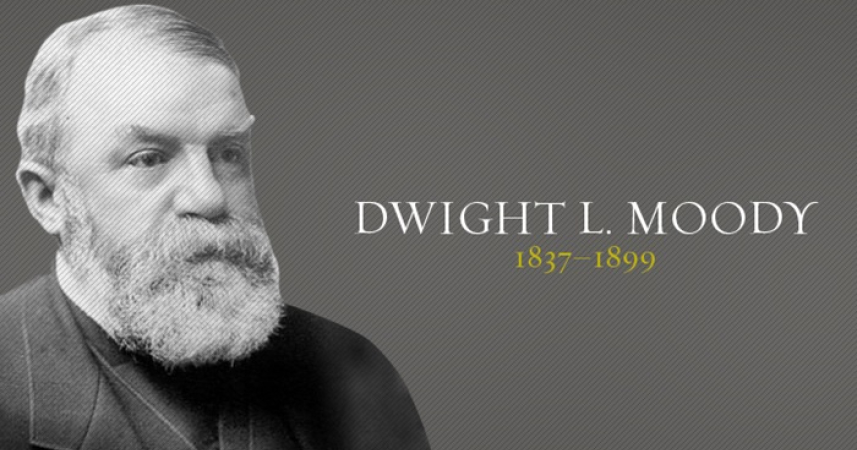[youtube https://www.youtube.com/watch?v=iBc8ZQQG85o]
Technology didn’t come about by accident, it’s a reflection of human will, or so claims the intriguing documentary, “Stare Into the Lights My Pretties.” Yet, with the rate of technological development continuing to grow exponentially, it’s unclear if anyone envisioned how society would become obsessed with staring at screens, such that our waking hours are dominated by them in one form or another.
In the beginning, there were only a few ways to get new technology funded, known as the ABCs. “A,” for armed forces, included ARPA, the Advanced Research Projects Agency, which commissioned the work that started the internet. “B,” for bureaucracy, refers to innovations such as government sites intended to deliver information and services, including online tax returns. “C,” or corporate power, made up the third arm, which drove the development of new products to draw in new markets.
According to Lelia Green, a professor and senior lecturer at the school of communications at Edith Cowan University, Perth, Australia, who is featured in the film, “Google would offer many examples of corporate power driving development.”1 Yet, social engagement is the new driver of technology that has taken off more so in recent years. Green notes that distributed collaborators and everyday innovators are now an important driver of technology.
“The acknowledgement of distributed networks of collaborators allows recognition of the creative power of ‘harnessing the hive;’ the community of people engaged in a shared activity,” she says. “We see these alliances of enthusiasts working creatively and productively in gaming contexts, in wikis and on fan fiction sites — to name but a few,” but what does all of this mean, and what will happen if this technological culture is left to continue unchecked?
Are Machines Running Our Lives?
At the foundation of the documentary is the unsettling question of who’s really in control: the machines or us? The film gives some unsettling statistics of how integrated technology has become in our 21st century lives:
- Over 3.8 billion people have access to the internet
- There are 2 billion active Facebook users every month
- The average adult spends more than eight hours a day with screens (more time than sleep)
- Within the first 15 minutes of waking up, 4 out of 5 smartphone users check their phones
- By the time the average person reaches 70, they will have spent the equivalent of 10 to 15 years of their life watching television, more than four years of which was just for the ads
What does this mean for your brain? “As a neuroscientist, I know that the human brain is changing. I know that it’s highly plastic … it’s very dynamic, it will adapt to the environment,” says Susan Greenfield in the film. But the environmental stimuli that come through screens may be keeping us permanently distracted. You read an article online, then see an instant message pop up or go to check an email.
Then you click on an advertisement, and suddenly are watching a video about an entirely unrelated topic. It’s easy to get swept away into the internet bubble, which can have both benefits and risks. Greenfield explained:
I’ve often spoken about the benefits of screen culture being one of agile processing, but how that mustn’t be confused with content … it could be linked to high IQ, because the skills that you rehearsed when you play video games are similar to the skills required to do well on an IQ test.
You don’t need a lot of facts or infrastructure … but you have to be very agile at looking at patterns and connections and getting to an answer in a very fast time frame … just because, as many claim, we’re seeing an increase in IQ scores in many societies, we’re not seeing an increase in empathy and understanding.
In a meta-analysis of 116 studies published in Frontiers in Human Neuroscience,2 for example, which set out to determine what effects gaming has on your brain, the evidence suggests that video games may benefit attention, and video game players show improvements in selective attention, divided attention and sustained attention, as well as areas of cognitive control and visuospatial skills.
The downside may be their effects on reward processing areas of your brain. Many such areas have been shown to be affected in people with video game addiction, “an impulse-control disorder with psychological consequences, not unlike other addictive disorders, especially nonsubstance addictions such as pathological gambling,” the study noted.3 “On the one hand, yes it’s very good for mental processing, fluid intelligence,” Greenfield said, “ … but that’s not the same as understanding. Information is not knowledge.”
Are Screens Leaving Us Incapable of Deep Thinking, Addicted to Constant Scrolling?
Nicholas Carr, author of the books, “The Shallows: What the Internet Is Doing to Our Brains” and “Utopia Is Creepy,” has found that with rising use of digital devices, millennials are experiencing even greater problems with forgetfulness than seniors.4 This is the “dark side” of neurological plasticity that allows your brain to adapt to changes in your environment.
This type of plasticity is one way your brain recovers after a stroke has permanently damaged one area. However, the consequences to children growing up in the digital era could be devastating. Carr said in the film:
The human brain is particularly malleable when you’re young. If a person is brought up looking at screens … and being bombarded by information, then the question is will the brain circuitry necessary to do things like deep reading and deep thinking, will they ever come into being … or will they be wired for internet type of thinking?
I think the big fear is that we will end up with a generation of people who are very good at using the net and finding information very quickly but don’t really have a capacity for contemplativeness, concentration or deep engagement with information.
There are concerns about addiction as well, with 40 percent of the participants in one study admitting they had some level of an internet-related problem and acknowledging they spent too much time online.5 Participants reportedly spent an average of five hours each day on the internet and 20 percent spent over six hours a day. By far the most common reasons for engaging online were social media and shopping.
Yet, overall social media use, and especially nighttime use, has been associated with poorer sleep quality, lower self-esteem and higher levels of anxiety and depression among 12- to 18-year-olds, according to research presented at a British Psychological Society conference.6 Greater social media use among young adults (those aged 19 to 32 years) was also significantly associated with disturbed sleep in a Preventive Medicine study.7
Further, a study of more than 1,000 people in Denmark further revealed causal evidence that “Facebook affects our well-being negatively.”8 Facebook users who took a one-week break from the site reported significantly higher levels of life satisfaction and a significantly improved emotional life, the study revealed.
Is Technology Amplifying the Voice of Corporate Control?
While the internet is viewed as a way to bring the world to our fingertips, there are those who say it’s actually a tool for amplifying the voice of corporate control. We tend to think about the internet as this medium where we can connect to everything and anyone, but in actuality most of the information is flowing through a couple of major gatekeepers, such as Google.
You can customize and filter what you see, but how these things are architected actually may keep you in a carefully constructed bubble. By customizing and individualizing your feed, you won’t even know what’s being kept out. But what happens to our communities, our relationships and our culture if we’re all existing in this “filter bubble,” this world of screens, designed primarily to get people to click more and view more pages?
It’s important to understand that, online, you are the product and corporations are seeking to gain more views of their content. Facebook, for instance, isn’t content to have the average user spend “just” 50 minutes a day. They’d rather it become a platform that’s on all day to become basically a background for your life. As The New York Times reported:9
Facebook, naturally, is busy cooking up ways to get us to spend even more time on the platform. A crucial initiative is improving its News Feed, tailoring it more precisely to the needs and interests of its users, based on how long people spend reading particular posts
For people who demonstrate a preference for video, more video will appear near the top of their news feed. The more time people spend on Facebook, the more data they will generate about themselves, and the better the company will get at the task.
Facebook actually uses a sophisticated algorithm to track your interests, who you talk with and what you say, and includes information about your age, gender, income level and a phenomenal number of other specifics that allow advertisers to target exactly who they believe will click on their ads.10 In the case of smartphone devices, these companies are contributing to programing your actions, and how you think and feel.
This is how companies satisfy their advertisers, who are paying for the privilege of your eyes on their ads. Some programmers call this process “brain hacking,” as they incorporate more information from neuropsychology into the development of digital interfaces that increase your interaction with the program.
For instance, getting likes on Facebook and Instagram, the “streaks” on Snapchat or cute emojis on text messaging, are all designed to increase your engagement and desire to return. Technology companies are in the business of manipulating your behavior, and there are privacy concerns as well.
Rebecca MacKinnon of Global Voices Citizen Media Network said in the film, “Surveillance is much more present in our online than our offline lives, and I think most people in the United States … are not aware of that because when police officers come into your house … and go through your cabinets and desk, it’s obvious. If they do the equivalent in your email, your online storage systems or your Facebook … you don’t even know. So you’re not going to raise a fuss about it.”
The fact remains that people are putting intimate details of their lives online without regard for those who could be using that information negatively. The film also points out that personal details you share online — from religious affiliations to sexual preferences to information about your family — could one day be used against you or in a way that could bring you harm.
Screens Expose You to Blue Light
Another little talked about variable when it comes to exposure to screens is blue light. Exposure to LED-backlit computer screens or TVs at night significantly suppresses melatonin production and feelings of sleepiness. When your brain “sees” blue light at night, the mixed message can add up to serious health issues.
In 2011, for instance, researchers found that evening exposure to LED-backlit computer screens affect circadian physiology. Among 13 young men, exposure to five hours of an LED-lit screen at night significantly suppressed melatonin production along with sleepiness.11
The issue extends far beyond sleep, however. LEDs have virtually no beneficial infrared light and an excess of blue light that generates reactive oxygen species (ROS), harming your vision and possibly leading to age-related macular degeneration (AMD), which is the leading cause of blindness among the elderly in the U.S. LED lights may also exacerbate mitochondrial dysfunction leading to chronic conditions ranging from metabolic disorders to cancer.
If you view screens at night, it’s therefore essential to block your exposure to blue light while doing so. In the case of your computer, you can install a program to automatically lower the color temperature of your screen. Many use f.lux to do this, but I prefer Iris software for this purpose. In addition, when watching TV or other screens, be sure to wear blue-blocking glasses after sundown.
Are Machines More Important Than the Real World?
Ultimately, the documentary forces you to take a step back and think about the way technology has inevitably invaded your life. On the upside, it also offers the chance to make changes in how much it influences your daily activities. For some, taking a social media break may be the eye-opening change that’s needed, particularly if you find you feel worse after a browsing session.
You may also want to keep track of how much time you lose while getting distracted online — and devote that time to offline endeavors instead. If you find your life has become more focused on technology than relationships, now’s the time to make changes for the better, before it’s too late. As stated in the film, the risks can be steep:
Do you touch plastic or human flesh more often? How many machines do you have daily relationships with, compared to how many wild animals do you have relationships with? If you have relationships with machines, you can come to think that they’re more important than the real world.
Sources and References
 One hundred eighty one years ago (February 5, 1837), there was born of poor parents in a humble farmhouse in Northfield, Massachusetts, a little baby who was to become the greatest man, as I believe, of his generation or of his century—Dwight L. Moody.
One hundred eighty one years ago (February 5, 1837), there was born of poor parents in a humble farmhouse in Northfield, Massachusetts, a little baby who was to become the greatest man, as I believe, of his generation or of his century—Dwight L. Moody.
 Source: Wikipedia/Supaman89
Source: Wikipedia/Supaman89 Source: Institute for Family Studies
Source: Institute for Family Studies Source:
Source: 
 WALSH: The Four Terrible Things That Are Destroying Boys In Our Culture
WALSH: The Four Terrible Things That Are Destroying Boys In Our Culture Men want to earn a living – women want to marry them and look after the kids
Men want to earn a living – women want to marry them and look after the kids Robert Mueller’s team members are the people who
Robert Mueller’s team members are the people who  Home education has always been common among the country’s elite. The Royal Family have all in the past been educated at home, including the current Queen, though more recently royalty have attended various public schools.
Home education has always been common among the country’s elite. The Royal Family have all in the past been educated at home, including the current Queen, though more recently royalty have attended various public schools. Videos that show the striking similarities between the scripts used by local TV anchors and reporters are nothing new, but a recent compilation has taken the Internet by storm as it shows dozens of news stations coming together to warn about the dangers of “fake news” with an eerily identical script.
Videos that show the striking similarities between the scripts used by local TV anchors and reporters are nothing new, but a recent compilation has taken the Internet by storm as it shows dozens of news stations coming together to warn about the dangers of “fake news” with an eerily identical script.